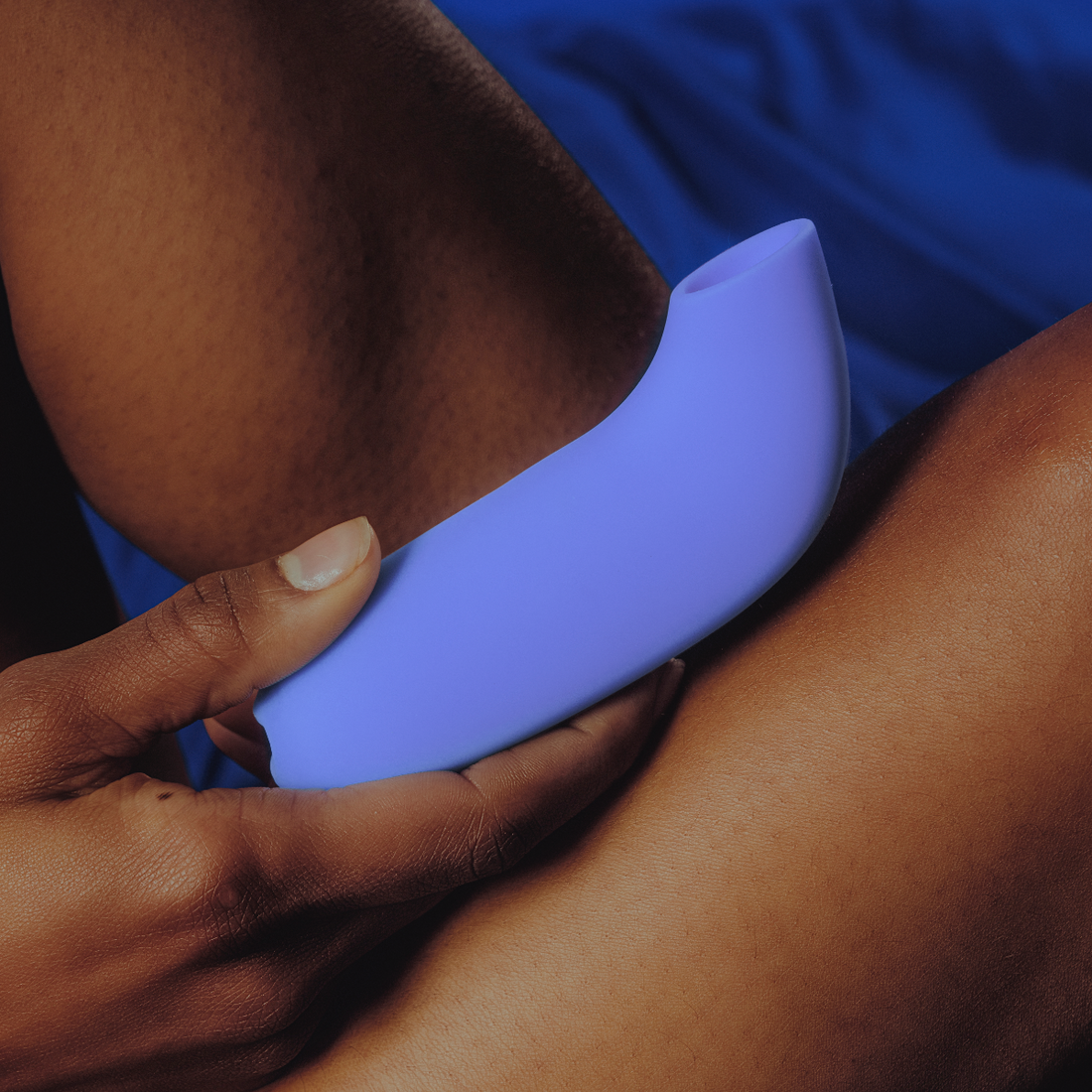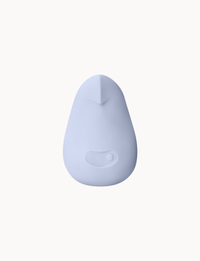When it comes to our experiences of sexuality, I’ve noticed one thing: Many of us feel overwhelmingly worried about how different life experiences might affect our relationships with sexuality.
Sexuality is always evolving throughout our lives, but sometimes, certain things can jumpstart the next round of shifts. One of the things that can accelerate changes in our sex life is using hormones as gender-affirming care.
While change can sometimes feel out of control or overwhelming, it can also be really exciting. Those changes can lead to gender euphoria and a more embodied relationship with ourselves and our sexuality, and sometimes, change can help us feel more at home in how we connect sexually!
Both feminizing and masculinizing hormone therapy can affect your sex life, but in this article, we’re focusing on some of the sexual experiences that folks taking testosterone (aka T) might encounter.
Remember, everyone’s body, needs, and desires are different, so if you read something here that doesn’t align with your experiences, that’s okay and it doesn’t mean anything is wrong with you. If you’re concerned or curious about an experience you’re having, chat with your medical provider.
A quick note on language: Many transmasculine folks use different names for their genitals, like “front hole” instead of “vagina” or “cock” in place of “clitoris.” In this article, I’ll be using medical terminology to describe specific medical experiences — but when discussing and processing how these things affect your life, use the language that works best for you!
No matter how you’re feeling about how using testosterone might affect your sex life, stay curious about the experiences you’re having. You’re worth getting to know as you are today, and that includes who you are in relationship to your sexuality!
Alright, let’s dive in.
You might notice an increase in sexual desire
One of the most common side effects that trans masculine folks on testosterone report is an increase in sexual desire, or how frequently you want to have sex.
Testosterone can make people feel like they’re going through a second puberty in many ways — your voice deepens, your skin may get more oily and develop acne, and you’ll start sprouting new body hair. And…horniness!
When you’re taking T, you might notice that you want sex more frequently. Sometimes, this can be exciting, especially for folks who have dealt with dysphoria crushing their desire. For other folks, a sudden increase in desire levels can feel jarring or out of control.
Everyone’s experience is different, so pay attention to how you’re physically feeling, what activates your desires, and what emotions come up for you in those moments.
Your experience of attraction might shift
Some trans folks report a change in their sexual orientation. No one really knows why this happens, and it isn’t inherently linked to HRT overall — people report this throughout at many different points in their transitions. Still, many people report changes in sexual orientation after beginning HRT.
Some people also report that while they’re attracted to the same genders, they might experience changes in how they experience attraction. For example, you might notice that you more easily experience attraction in casual contexts.
Our understanding of ourselves and our sexualities change throughout our lifetime, and that’s true for everyone. Sometimes, that’s because we find new language or communities that help us better understand who we are and how we experience attraction. Sometimes, we are able to view ourselves through a new lens. And sometimes, it just happens.
While changes in your sexual orientation can come with big feelings, remember that it’s also totally normal. So make room for the feelings, and learn about who you are today.
Vaginal lubrication will start to decrease
When taking T over the long term, you’ll likely start to notice that vaginal lubrication (and even regular discharge) can decrease. Because your body might not self-lubricate as much as it used to, it’s especially important for folks taking testosterone to use lube during sex.
Even when you’re not having sex, you might notice some dryness-related discomfort. If this happens, you can talk with your doctor about options to help restore moisture to your mucous membranes.
Vaginal penetration may become uncomfortable
This experience is tied to the decrease in vaginal lubrication that you might experience. Testosterone can cause the mucous membranes of the vulva and vagina to thin and become less stretchy — the medical term for this is vulvovaginal atrophy, and it also happens to people going through menopause.
When you combine the decrease in self-lubrication with the thinning of the vulvovaginal mucous membranes, you’re more likely to have pain, tearing, or bleeding during penetrative vaginal sex.
If someone had PTSD, pelvic pain, or a hypertonic pelvic floor before starting HRT, they may be more likely to experience pelvic pain after starting HRT, too. If you’re experiencing pelvic pain, chat with your medical provider about what you’re experiencing. They may recommend physical therapy, complementary medications, or another treatment plan to help you manage the pain.
Remember, unwanted pain during sex might be common, but that doesn’t mean it’s normal. So if it’s getting in the way of your sex life (or just making you uncomfortable), it’s okay to talk about it.
Menstruation will stop (but pregnancy is still possible)
After about 6 months on T, many folks stop menstruating. Even if you’re not getting your period anymore, you may still experience some spotting. This can be really exciting, especially for folks who experience menstruation-related dysphoria.
Even if you stop menstruating after beginning testosterone, it’s iimportant to know that testosterone is not birth control, and it is possible to get pregnant while taking T. So, if you’re having penetrative vaginal sex with someone who produces sperm, you may want to consider additional birth control options (like barrier methods or an IUD).
You’ll notice an increase in the size of your genitals
When you take testosterone as HRT, over time, you may notice that your genitals are changing size and shape — in particular, your clitoris might grow.
That’s because your body will start developing more erectile tissue, and in turn, your clitoral glans will elongate and become more pronounced. This growth slowly continues over time! For many people, clitoral growth is also associated with an increase in clitoral sensitivity.
As your genitals change, take the time to explore them and notice how they respond to stimulation differently. For example, you’ll be able to see and feel when you’re erect more easily, and that can be a very gender-affirming experience for some folks!
The things you enjoy during sex might change
Just like you might experience changes in desire and attraction, you might also experience a shift in the behaviors that you enjoy. Sex acts that were previously off the table might be intriguing, and things that you previously enjoyed just might not feel the same.
Some folks taking testosterone notice an increase in their response to visual stimuli. You might find yourself enjoying porn when you previously were ambivalent about it, or you might like watching yourself (or your partners) in the mirror while you masturbate or have sex.
Remember, the things we enjoy during sex change throughout our lives for everyone — so be patient with yourself as you navigate these shifts. You might be excited by some and frustrated by others. Approach these changes with curiosity and talk openly with your partners about what you’re feeling. You may just find some new favorite activities!
Your experience of orgasm might change
At this point, you’re probably recognizing that testosterone can cause changes in basically every part of sex life — yes, including your orgasms.
Some people on testosterone report that orgasms physically feel different in their bodies. They might become more (or less) intense, be more centered in the genital region, or take more/less time to happen. People who previously were readily multiorgasmic may find that their refractory period has become longer and that they need more time in between orgasms.
Basically, orgasms can just…change!
As you begin your gender-affirming hormone journey, stay open and curious to all of the ways your relationship with your body and sexuality might change. If you need extra support throughout those changes, talk with friends, partners, a therapist, and even online support groups!




















































